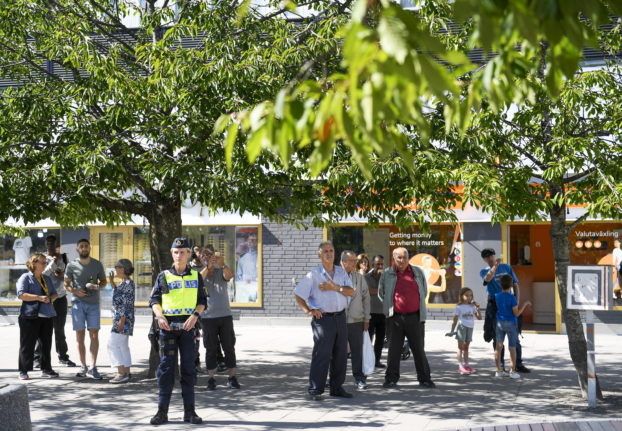Paludan and his party have been holding demonstrations this week involving burning the Koran, in what Paludan describes as an “election tour” ahead of standing in Sweden’s parliamentary election in September.
However Swedish newswire TT has reported that few people have seemed to care about the shock tactics used and police have confirmed that no major disturbances have occurred as a result of the demonstrations.
This is in stark contrast to the demonstrations over Easter, which resulted in riots involving vandalism and violence aimed primarily at police. A total of 26 police officers were injured and at least 40 people were arrested.
“The police did not anticipate the extent of the protests and the enormous violence that the Easter riots brought with them. I don’t know if we have seen anything similar in Sweden in modern times,” Sten Widmalm, political scientist at Uppsala University, told newswire TT.
Widmalm says there are now fewer people turning up at Paludan’s demonstrations because of the number of people charged over the Easter riots. He also noted the increased police presence and adapted resources by the police, which has stopped anyone getting close to using violence.
Everyone that TT newswire spoke to a demonstration in Fittja torg, said they knew Paludan’s aim was to provoke people.
“I am a Muslim myself and I don’t care. For a true Muslim, all religions are equal. His message is to create conflict and irritation. You shouldn’t give him that,” Himmet Kaya told TT.
According to Widmalm, there is nothing to indicate that Paludan will be successful at the Swedish election.
“On the other hand, I think that Stram Kurs has influenced Swedish politics very much in such a way that it has exposed large gaps in society. I think awareness of these has increased, due to the Easter riots – although it’s nothing to thank Paludan for.”
In Sweden, you must be a Swedish citizen in order to be elected to parliament. Paludan’s father is Swedish, and he applied for and was granted Swedish citizenship in 2020.
In order to enter the Swedish parliament, Paludan must win at least four percent of the vote in the upcoming election.
In 2019, Paludan stood in Danish parliamentary elections, achieving only 1.8 percent of the vote. Under Denmark’s proportional representation system, parties must achieve at least two percent of the vote in order to enter the Danish parliament.



 Please whitelist us to continue reading.
Please whitelist us to continue reading.
Member comments